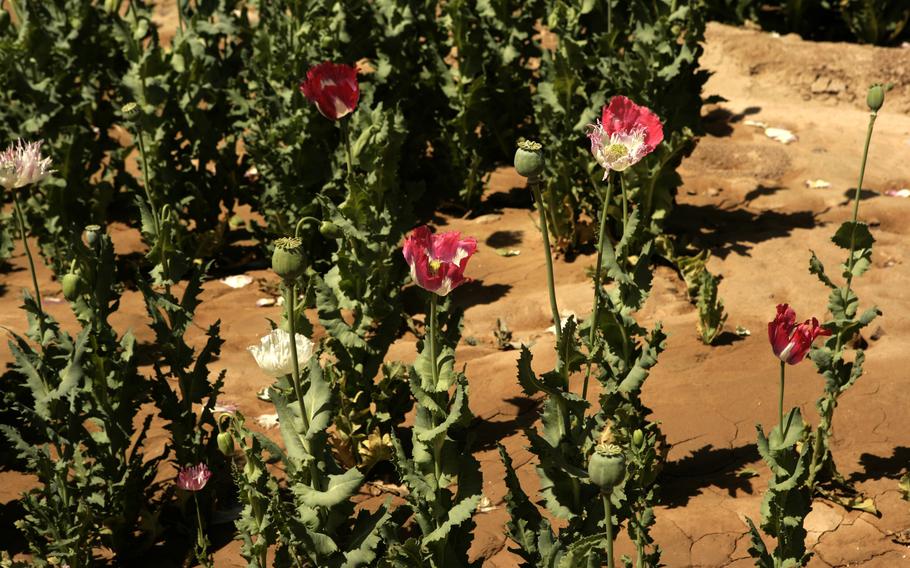
A field filled with opium poppy plants in 2012 in Marjah, Afghanistan. Heroin is derived from raw opium gum, which comes from opium poppies. (Michael P. Snody/U.S. Marine Corps)
WASHINGTON — The Pentagon said Tuesday that it’s urging U.S. service members to avoid eating foods with poppy seeds in them because new research shows it can lead to more false-positive drug test results.
In the past, defense officials in most cases were able to tell whether drug tests detected consumed poppy seeds or illicitly used morphine or codeine by looking at the opium substance levels — but new data shows that might be more difficult now, the Pentagon said.
The Pentagon warned in a memo that military researchers have recently found higher opium contamination levels in poppy seeds.
“Recent data suggest certain poppy seeds varieties may have higher codeine contamination than previously reported," Gilbert Cisneros, the Pentagon’s undersecretary of defense for personnel and readiness, wrote in the memo. “Consumption of poppy seed products could cause a codeine-positive urinalysis result and undermine the department’s ability to identify illicit drug use.”
The Pentagon said all troops should “avoid consumption of all poppy seeds to include food products and baked goods containing poppy seeds” to prevent a false positive drug test. Such seeds are often found in breads, bagels and other foods.
Military officials said false-positive test results from eating the seeds are nothing new, but the higher contamination levels can surpass cutoff levels that the Pentagon uses to determine whether the test is seeing poppy seeds or morphine/codeine.
“Out of an abundance of caution, I find protecting service members and the integrity of the drug testing program requires a warning to avoid poppy seeds,” Cisneros wrote in the memo. “As more information becomes available, we will revise this policy accordingly.”
Morphine, codeine and many other opioids are developed from opium poppies that are grown mostly in parts of Asia and the Middle East, including Afghanistan. During harvesting, the poppy’s pod is cut with a knife to drain a white milky latex that oozes out and eventually turns into a dark brown gum. That gum contains the opium alkaloids that go into making morphine, codeine and other drugs — and sometimes it contacts and contaminates the seeds.
“Even though most of the opium is removed from the poppy seeds during processing, in some cases the seeds sold for use in foods still have a significant amount of opium — and thus morphine — on them,” the nonprofit, nongovernmental U.S. Anti-Doping Agency states on its website. “The amount of morphine residue left on the seeds depends on how well the poppy seeds are cleaned and processed.”
The Pentagon emphasized in its memo that illicit drug use is a safety and readiness issue in the military.